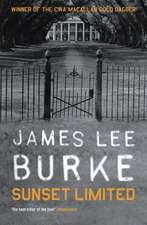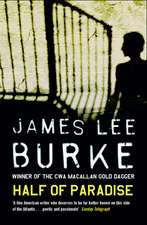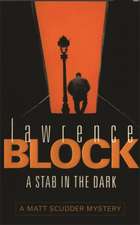Still Waters
Autor Tami Hoagen Limba Engleză Paperback – 5 feb 2018
When Elizabeth Stuart and her teenage son arrive in Still Creek, Minnesota, she believes that this small town will offer them a fresh start—and distance from a troubled past. Instead Elizabeth finds herself unwelcome and treated with suspicion. But a bigger shock is yet to come: The body of a dead man literally falls at Elizabeth’s feet. Though she can wash away the blood, the terror remains. And this seemingly idyllic hamlet, nestled in the heart of lush Amish farmlands, is suddenly revealed to hold secrets dangerous enough to inspire murder.
Nothing and no one will stop Elizabeth from digging beneath the town’s placid surface for the truth . . . not even local sheriff Dane Jantzen, with his broad shoulders and cool blue eyes. Though not obvious at first, the attraction between them intensifies. But she will risk everything to save herself and her son, to unmask a killer—before the current of evil flowing through Still Creek drags her under.
Preț: 70.52 lei
Nou
Puncte Express: 106
Preț estimativ în valută:
13.50€ • 13.91$ • 11.40£
13.50€ • 13.91$ • 11.40£
Carte indisponibilă temporar
Doresc să fiu notificat când acest titlu va fi disponibil:
Se trimite...
Preluare comenzi: 021 569.72.76
Specificații
Notă biografică
Tami Hoag's novels have appeared regularly on national bestseller lists since the publication of her first book in 1988. She lives in Los Angeles.
From the Paperback edition.
From the Paperback edition.
Extras
"Life's a bitch and then you die."
The words had no sooner slipped from Elizabeth Stuart's lips than the slim stiletto heel of her Italian sandal glanced off an especially large chunk of rock. She stumbled, swore with the fluency of one raised on a cattle ranch in West Texas, and gamely pressed on, limping. She had endured too much in her life to let a little thing like this break her, bodily or otherwise--two broken marriages, countless broken hearts, broken dreams that lay scattered in her wake like the wreckage of a plane crash. This was nothing by comparison.
Still, she couldn't seem to keep a sheen of tears from glossing over her eyes. It was life's little insults heaped one on top of another that tended to get to her. The odd major catastrophe--like getting dumped and dragged through the mud by the man she had pledged to love until death? Shoot, she could buck up and take that. She was a trooper. She was a fighter. Get her sixteen-year-old gas-guzzling boat of a car hung up on the side of a country road on the way to the tumbledown hovel she was currently calling home? That was just plain too much.
She sniffed and swiped a hand beneath her nose, gritting her teeth against the urge to cry. Lord have mercy, if she started crying over this, if she let the dam crack and the tears start to flow, she'd likely drown. And she would ruin her Elizabeth Arden mascara, which she was nearly out of and couldn't afford to replace. Life would go on, she told herself grimly, beating back the tears with her lashes. Life would go on, for better or worse, whether Brock Stuart divorced her or her Eldorado was stuck or whatever other shit was flung merrily into her path by that bastard Fate. All she had to do was keep putting one foot in front of the other. What she stepped in along the way couldn't matter. She either had to keep moving on or curl up in a big ball of misery and die.
The Eldorado was a good half mile behind her, hanging off the edge of the road like a drunken cowboy sliding off his horse. Elizabeth glanced back at it, scowling, then set her sights forward again. If she could get past the fact that she was madder than a wet cat, she'd note that the view was lovely. The rolling countryside of southeastern Minnesota was beautiful. Not in a spectacular, breathtaking way. Not in the wild, desolate way of West Texas, but in a gentle way, a peaceful way. Like Vermont without the mountains. The rippling hills were bathed in a palette of springtime greens--young corn and oats, alfalfa and wild grass, all swaying in the early evening breeze. Occasional islands of trees broke the monotony of farm fields. Maples, cottonwoods, oaks. Their leaves turned inward, undersides flashing silver as the wind shook them.
To the south, the pastureland sloped down to Still Creek, the meandering puddle of water the nearest town had been named for. The banks were steep, the creek itself shallow and muddy, probably twenty feet across. Dragonflies skimmed above the surface and weeping willows bowed across it, their slender, pendulous branches fluttering like ribbons. In the part of Texas Elizabeth was from, Still Creek would have been called a river and it would have been coveted by all who lived near it and guarded jealously by the ranchers who owned land along its banks. Here, where water was plentiful, Still Creek was insignificant, just another facet of the pretty landscape.
Above the pastoral beauty of Still Creek and its environs, the sky hung like a curtain of lead, threatening an evening shower. Elizabeth muttered a curse under her breath and tried to limp a little faster. She was at least a mile from home. The nearest farm belonged to one of the Amish families the area was famous for. She doubted she would get much in the way of help there. They would have no phone to call a tow truck, no tractor to pull her car out of the ditch. They wouldn't even have a cold beer to console her with. In short, they would be about as much good to her as a bunch of eunuchs at an orgy.
"Look on the bright side, sugar," she said, hiking the strap of her Gucci handbag up on her shoulder. "If this was West Texas and you were stranded in the middle of nowhere, it'd take you the better part of a week to walk home."
God, Brock would have loved seeing her reduced to this, she thought, casting another dubious look at the swelling clouds. Limping down the road from a little jerkwater town toward a house he wouldn't deem fit for dogs, rain pouring down over her, ruining her favorite Armani silk blouse. She could picture him, perfect and gorgeous, handsome enough to make Mel Gibson look homely, snickering at her in that mean, superior way of his, like a spoiled little rich kid who'd taken up all his toys and kicked the poor neighbor girl out in the street.
For a man so filthy rich, he could be a petty bastard. But there was no point in reviewing that fact now. She snagged back a handful of wind-tossed black hair with her free hand and tucked it behind her ear as she hefted her Kmart vinyl briefcase, and kept on walking, gravel biting into the bottoms of her feet through the thin soles of her sandals.
There was a message in that, she reckoned. People who had to walk through life wore sensible shoes with thick rubber soles, and fat white cotton socks. Rich people wore red kid Ferragamo sandals with pencil-slim heels and had chauffeurs take them where they needed to go. Rich people had no need for sensible shoes or raincoats. She was no longer a rich person.
That in itself wasn't as devastating as it might have been had she been rich all her life. She had been rich for only a few short years, the five years she'd been married to Brock, who had taken a modest family fortune and parlayed it into a disgusting amount of money in the media business. His knack for turning failing newspapers, television, and radio stations into blue-chip businesses had put him on a financial par with the likes of Ted Turner. Brock Stuart had more money than most third world countries.
It had been easy enough to get used to that life-style, Elizabeth reflected, brushing a speck of lint off the lapel of her red silk blouse. She had a taste for champagne and a natural love of French lingerie. She'd been a whiz at picking out trinkets from Tiffany's and designer gowns. But she still knew how to wear faded jeans. She could still dance the two-step and belt down Lone Star beer. She still knew how to wear boots. Unfortunately, hers were a mile down the road lying on the back porch with a heap of battered sneakers.
Just ahead, on the north side of the road, stood the tidy Amish farm she had already disregarded as a source of help. The yard was empty. The house was dark, its curtainless multipaned windows giving it an air of abandonment. Long, plain wooden benches were stacked like cordwood on the front porch. The only sign of life was a fat ginger cat sitting on the top bench, licking its paw.
On the south side of the road a freshly laid gravel drive led across the field to the construction site of what was being touted as the finest resort south of the Twin Cities. The paradox was not lost on Elizabeth. The tourists who came to see the Amish and their simple, rustic way of life would be staying just across the road in twentieth-century splendor. In addition to the hotel itself, there would be tennis courts, a golf course. There was even a rumor going around that Still Creek would be dammed and swollen into a small man-made lake that would be stocked with fish and lined up with paddleboats.
The resort was in a stage of construction that made it look like nothing more than a big, ugly skeleton, but Elizabeth had seen the sketches of the finished product in a back issue of the Clarion. She could say with certainty that the Still Waters resort was going to be big and vulgar, not unlike the man who was building it--Jarrold Jarvis. She labeled the style Early French Brothel, an incongruous blend of French Provincial, English Tudor, and Moorish monstrosity. It would look as out of place here as a Las Vegas casino.
She groaned as she caught sight of Jarvis's powder-yellow Lincoln Town Car parked near the rusting white trailer that served as office for the construction site. When it came to overbearing swine, Jarrold Jarvis was king pig around Still Creek. He'd made his money in highway construction, scratching his way up from the bottom rung of the ladder to a position where he could afford to dabble in the tourist trade with a little venture like Still Waters. His journey from poverty to prosperity had left him with a survival-of-the-fittest mentality that, in his opinion, allowed him to lord it over anyone he thought inferior to him, genetically or financially--which meant most everyone in Still Creek.
Elizabeth knew a lot of men around town had come to the erroneous conclusion that because she had suffered the great misfortune of having been married twice, she was an easy lay. Jarrold Jarvis was the only one who'd actually had the gall to come right out and say so to her face. He had insulted her in one rancid breath and propositioned her in the next. He was the last man she could think of--except Brock--whom she would want to be rescued by. But as thunder began to rumble in the distance and the belly of the slate-colored clouds sagged a little lower, she turned in at the driveway and limped determinedly down it. There was no telling how long it might be before she would be able to afford another Armani silk blouse.
The building site had an eerie kind of quiet about it. The work crews had long since called it a day. The hammers and saws were silent. Nature itself seemed to be holding its breath in the face of the modern wound that was being inflicted on it. A large chunk of the perfect meadow had been sliced away, bulldozed to make room for rooms with a view. The soft green grass had been peeled back to reveal rich black dirt that was now rutted with tire tracks and littered with the evidence of man's intrusion--discarded food wrappers, crumpled soda cans, trampled yellow invoices, an abandoned leather glove.
No one answered Elizabeth's knock on the office door. "Mr. Jarvis?" she called, carefully descending the beat-up metal steps. She wasn't sure what she dreaded more--silence or having him answer.
"Mr. Jarvis?" Her voice carried across the meadow and faded away unanswered.
Heaving a sigh, she wandered up along the driver's side of the Lincoln, the heels of her sandals sinking down into the thick, coarse gravel of the drive. Her gaze scanned the building site once again in the waning light. Jarvis might have caught a ride with his contractor or foreman. Or he might have just walked into the surrounding woods to take a leak or something.
Now, there was an unpleasant prospect--catching Jarrold Jarvis with his knickers down. Elizabeth hung back beside the car, grimacing at the idea. Jarvis was a big man with a build that spoke of a sedentary life and a fondness for fat and cholesterol. He might have looked like some hot stud once upon a time, but years and calories had stretched him into a waddling tub of lard, sort of like Orson Welles after he let himself go. If there was anything even remotely interesting inside his shorts, it was completely overshadowed by his belly.
Just about convinced that she'd rather be drenched with rain and struck dead by lightning than ask him for a ride home, she started to turn away from the car. Her heart leapt into her throat as her gaze caught on the figure of a man sitting in the front seat.
"Jesus H. Christ!" she gasped, clutching at her heart as she stumbled back a step, then lurched forward. "You obnoxious son of a--"
She grabbed the handle of the door and fumbled with it, adrenaline pumping through her, fear and anger making her fingers clumsy. "Of all the rotten things to do! I'm standing here, yelling my fool head off, and you sit there like a big old jackass looking at my butt! By God, Jarrold Jarvis, if these weren't my favorite Ferragamo sandals--",
The rest of her tirade was lost, jammed somewhere in her throat with the bitter taste of terror as the Lincoln's door swung open and Jarrold Jarvis spilled out onto the fresh white gravel at her feet, his fat throat slit from ear to ear.
From the Paperback edition.
The words had no sooner slipped from Elizabeth Stuart's lips than the slim stiletto heel of her Italian sandal glanced off an especially large chunk of rock. She stumbled, swore with the fluency of one raised on a cattle ranch in West Texas, and gamely pressed on, limping. She had endured too much in her life to let a little thing like this break her, bodily or otherwise--two broken marriages, countless broken hearts, broken dreams that lay scattered in her wake like the wreckage of a plane crash. This was nothing by comparison.
Still, she couldn't seem to keep a sheen of tears from glossing over her eyes. It was life's little insults heaped one on top of another that tended to get to her. The odd major catastrophe--like getting dumped and dragged through the mud by the man she had pledged to love until death? Shoot, she could buck up and take that. She was a trooper. She was a fighter. Get her sixteen-year-old gas-guzzling boat of a car hung up on the side of a country road on the way to the tumbledown hovel she was currently calling home? That was just plain too much.
She sniffed and swiped a hand beneath her nose, gritting her teeth against the urge to cry. Lord have mercy, if she started crying over this, if she let the dam crack and the tears start to flow, she'd likely drown. And she would ruin her Elizabeth Arden mascara, which she was nearly out of and couldn't afford to replace. Life would go on, she told herself grimly, beating back the tears with her lashes. Life would go on, for better or worse, whether Brock Stuart divorced her or her Eldorado was stuck or whatever other shit was flung merrily into her path by that bastard Fate. All she had to do was keep putting one foot in front of the other. What she stepped in along the way couldn't matter. She either had to keep moving on or curl up in a big ball of misery and die.
The Eldorado was a good half mile behind her, hanging off the edge of the road like a drunken cowboy sliding off his horse. Elizabeth glanced back at it, scowling, then set her sights forward again. If she could get past the fact that she was madder than a wet cat, she'd note that the view was lovely. The rolling countryside of southeastern Minnesota was beautiful. Not in a spectacular, breathtaking way. Not in the wild, desolate way of West Texas, but in a gentle way, a peaceful way. Like Vermont without the mountains. The rippling hills were bathed in a palette of springtime greens--young corn and oats, alfalfa and wild grass, all swaying in the early evening breeze. Occasional islands of trees broke the monotony of farm fields. Maples, cottonwoods, oaks. Their leaves turned inward, undersides flashing silver as the wind shook them.
To the south, the pastureland sloped down to Still Creek, the meandering puddle of water the nearest town had been named for. The banks were steep, the creek itself shallow and muddy, probably twenty feet across. Dragonflies skimmed above the surface and weeping willows bowed across it, their slender, pendulous branches fluttering like ribbons. In the part of Texas Elizabeth was from, Still Creek would have been called a river and it would have been coveted by all who lived near it and guarded jealously by the ranchers who owned land along its banks. Here, where water was plentiful, Still Creek was insignificant, just another facet of the pretty landscape.
Above the pastoral beauty of Still Creek and its environs, the sky hung like a curtain of lead, threatening an evening shower. Elizabeth muttered a curse under her breath and tried to limp a little faster. She was at least a mile from home. The nearest farm belonged to one of the Amish families the area was famous for. She doubted she would get much in the way of help there. They would have no phone to call a tow truck, no tractor to pull her car out of the ditch. They wouldn't even have a cold beer to console her with. In short, they would be about as much good to her as a bunch of eunuchs at an orgy.
"Look on the bright side, sugar," she said, hiking the strap of her Gucci handbag up on her shoulder. "If this was West Texas and you were stranded in the middle of nowhere, it'd take you the better part of a week to walk home."
God, Brock would have loved seeing her reduced to this, she thought, casting another dubious look at the swelling clouds. Limping down the road from a little jerkwater town toward a house he wouldn't deem fit for dogs, rain pouring down over her, ruining her favorite Armani silk blouse. She could picture him, perfect and gorgeous, handsome enough to make Mel Gibson look homely, snickering at her in that mean, superior way of his, like a spoiled little rich kid who'd taken up all his toys and kicked the poor neighbor girl out in the street.
For a man so filthy rich, he could be a petty bastard. But there was no point in reviewing that fact now. She snagged back a handful of wind-tossed black hair with her free hand and tucked it behind her ear as she hefted her Kmart vinyl briefcase, and kept on walking, gravel biting into the bottoms of her feet through the thin soles of her sandals.
There was a message in that, she reckoned. People who had to walk through life wore sensible shoes with thick rubber soles, and fat white cotton socks. Rich people wore red kid Ferragamo sandals with pencil-slim heels and had chauffeurs take them where they needed to go. Rich people had no need for sensible shoes or raincoats. She was no longer a rich person.
That in itself wasn't as devastating as it might have been had she been rich all her life. She had been rich for only a few short years, the five years she'd been married to Brock, who had taken a modest family fortune and parlayed it into a disgusting amount of money in the media business. His knack for turning failing newspapers, television, and radio stations into blue-chip businesses had put him on a financial par with the likes of Ted Turner. Brock Stuart had more money than most third world countries.
It had been easy enough to get used to that life-style, Elizabeth reflected, brushing a speck of lint off the lapel of her red silk blouse. She had a taste for champagne and a natural love of French lingerie. She'd been a whiz at picking out trinkets from Tiffany's and designer gowns. But she still knew how to wear faded jeans. She could still dance the two-step and belt down Lone Star beer. She still knew how to wear boots. Unfortunately, hers were a mile down the road lying on the back porch with a heap of battered sneakers.
Just ahead, on the north side of the road, stood the tidy Amish farm she had already disregarded as a source of help. The yard was empty. The house was dark, its curtainless multipaned windows giving it an air of abandonment. Long, plain wooden benches were stacked like cordwood on the front porch. The only sign of life was a fat ginger cat sitting on the top bench, licking its paw.
On the south side of the road a freshly laid gravel drive led across the field to the construction site of what was being touted as the finest resort south of the Twin Cities. The paradox was not lost on Elizabeth. The tourists who came to see the Amish and their simple, rustic way of life would be staying just across the road in twentieth-century splendor. In addition to the hotel itself, there would be tennis courts, a golf course. There was even a rumor going around that Still Creek would be dammed and swollen into a small man-made lake that would be stocked with fish and lined up with paddleboats.
The resort was in a stage of construction that made it look like nothing more than a big, ugly skeleton, but Elizabeth had seen the sketches of the finished product in a back issue of the Clarion. She could say with certainty that the Still Waters resort was going to be big and vulgar, not unlike the man who was building it--Jarrold Jarvis. She labeled the style Early French Brothel, an incongruous blend of French Provincial, English Tudor, and Moorish monstrosity. It would look as out of place here as a Las Vegas casino.
She groaned as she caught sight of Jarvis's powder-yellow Lincoln Town Car parked near the rusting white trailer that served as office for the construction site. When it came to overbearing swine, Jarrold Jarvis was king pig around Still Creek. He'd made his money in highway construction, scratching his way up from the bottom rung of the ladder to a position where he could afford to dabble in the tourist trade with a little venture like Still Waters. His journey from poverty to prosperity had left him with a survival-of-the-fittest mentality that, in his opinion, allowed him to lord it over anyone he thought inferior to him, genetically or financially--which meant most everyone in Still Creek.
Elizabeth knew a lot of men around town had come to the erroneous conclusion that because she had suffered the great misfortune of having been married twice, she was an easy lay. Jarrold Jarvis was the only one who'd actually had the gall to come right out and say so to her face. He had insulted her in one rancid breath and propositioned her in the next. He was the last man she could think of--except Brock--whom she would want to be rescued by. But as thunder began to rumble in the distance and the belly of the slate-colored clouds sagged a little lower, she turned in at the driveway and limped determinedly down it. There was no telling how long it might be before she would be able to afford another Armani silk blouse.
The building site had an eerie kind of quiet about it. The work crews had long since called it a day. The hammers and saws were silent. Nature itself seemed to be holding its breath in the face of the modern wound that was being inflicted on it. A large chunk of the perfect meadow had been sliced away, bulldozed to make room for rooms with a view. The soft green grass had been peeled back to reveal rich black dirt that was now rutted with tire tracks and littered with the evidence of man's intrusion--discarded food wrappers, crumpled soda cans, trampled yellow invoices, an abandoned leather glove.
No one answered Elizabeth's knock on the office door. "Mr. Jarvis?" she called, carefully descending the beat-up metal steps. She wasn't sure what she dreaded more--silence or having him answer.
"Mr. Jarvis?" Her voice carried across the meadow and faded away unanswered.
Heaving a sigh, she wandered up along the driver's side of the Lincoln, the heels of her sandals sinking down into the thick, coarse gravel of the drive. Her gaze scanned the building site once again in the waning light. Jarvis might have caught a ride with his contractor or foreman. Or he might have just walked into the surrounding woods to take a leak or something.
Now, there was an unpleasant prospect--catching Jarrold Jarvis with his knickers down. Elizabeth hung back beside the car, grimacing at the idea. Jarvis was a big man with a build that spoke of a sedentary life and a fondness for fat and cholesterol. He might have looked like some hot stud once upon a time, but years and calories had stretched him into a waddling tub of lard, sort of like Orson Welles after he let himself go. If there was anything even remotely interesting inside his shorts, it was completely overshadowed by his belly.
Just about convinced that she'd rather be drenched with rain and struck dead by lightning than ask him for a ride home, she started to turn away from the car. Her heart leapt into her throat as her gaze caught on the figure of a man sitting in the front seat.
"Jesus H. Christ!" she gasped, clutching at her heart as she stumbled back a step, then lurched forward. "You obnoxious son of a--"
She grabbed the handle of the door and fumbled with it, adrenaline pumping through her, fear and anger making her fingers clumsy. "Of all the rotten things to do! I'm standing here, yelling my fool head off, and you sit there like a big old jackass looking at my butt! By God, Jarrold Jarvis, if these weren't my favorite Ferragamo sandals--",
The rest of her tirade was lost, jammed somewhere in her throat with the bitter taste of terror as the Lincoln's door swung open and Jarrold Jarvis spilled out onto the fresh white gravel at her feet, his fat throat slit from ear to ear.
From the Paperback edition.
Recenzii
“Patricia Cornwell, eat your heart out! Tami Hoag . . . sets a standard in suspense.”—The Atlanta Journal
Descriere
In this thrilling novel of suspense by #1 "New York Times"-bestselling author Hoag, Elizabeth Stuart and her teenage son arrive in a small town in Minnesota to find themselves unwelcome and treated with suspicion. But a bigger shock is yet to come.















